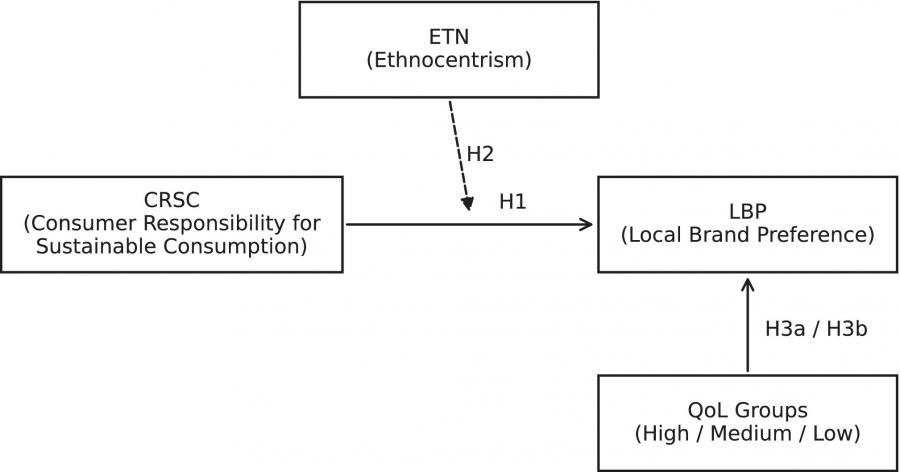“Living Local: The Impact of Quality‐of‐Life and Ethnocentrism on Consumer Responsibility for Sustainable Consumption and Local Brands” has been recently published in Sustainable Development.

A new article titled “Living Local: The Impact of Quality‐of‐Life and Ethnocentrism on Consumer Responsibility for Sustainable Consumption and Local Brands” has been published in Sustainable Development (2025). The paper is co-authored by Dr. Maryam Vaziri, member of the Smart Society Research Group at LaSalle URL, and Dr. Pilar Lopez-Belbeze, Dr. Joan Rialp-Criado, Autonomous University of Barcelona.
The study investigates how consumer responsibility for sustainable consumption (CRSC) and ethnocentrism (ETN) influence preferences for local brands, while considering the role of quality of life (QoL) across different Spanish regions.
Using a representative sample of 2,589 Spanish consumers and official QoL indicators, the researchers conducted cluster and structural equation modeling analyses. Their findings highlight important regional differences:
- Regions with socioeconomic challenges (e.g., Andalusia, Canary Islands, Murcia, Ceuta, Melilla) show that ethnocentrism amplifies the impact of consumer responsibility, with local brands seen as a way to support community identity and economic resilience.
- Developed and urbanized communities (e.g., Madrid, Catalonia, Basque Country) present a weaker link between responsibility and local brand preference, as consumers have greater access to global alternatives and prioritize sustainability practices over brand origin.
- Secure and environmentally rich rural regions (e.g., Asturias, Galicia, Castilla y León, Extremadura) display a stronger effect of responsibility on local brand preference, with safety and community cohesion reinforcing sustainable choices.
The article provides a nuanced view of intra-country disparities and stresses that sustainability strategies must go beyond national-level policies, tailoring interventions to regional quality-of-life conditions and cultural identity.
This research contributes to consumer culture theory by demonstrating how cultural identity and living conditions jointly influence sustainable consumer behavior.
The full article is available here: https://doi.org/10.1002/sd.70143
Please, for any questions contact: maryam.vaziri@salle.url.edu